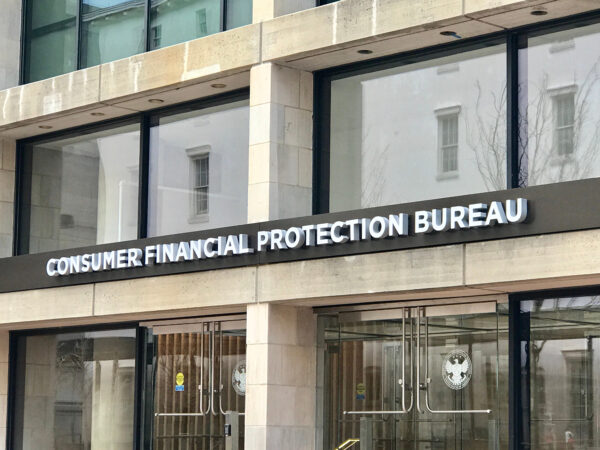By Sophia Huang, Advocacy & Outreach Associate

As the budget reconciliation process begins, the future of the Consumer Financial Protection Bureau (CFPB) is once again in jeopardy. The CFPB, created by Congress after the 2007-8 financial crisis, has long been a target of ire for corporate lobbyists and their allies in Congress. Attacks on the bureau’s work have intensified dramatically as the agency faces existential threats from a hostile executive branch. Meanwhile, a legislative assault on the bureau is taking place as well that could be just as dangerous for millions of working families, military members, and seniors.
The U.S. House Financial Services Committee is considering a slate of bills that would disrupt the CFPB. These bills, including the Taking Account of Bureaucrats’ Spending (TABS) Act and the Consumer Financial Protection Commission (CFPC) Act, would demolish the CFPB’s structure, kneecap critical functions of the CFPB, put consumers at risk, and make it easier for corporate bad actors to escape accountability.
With attacks on the CFPB’s independence, the TABS Act and CFPC Act retread familiar ground
Following the devastation of the 2008 financial crisis, Congress created the CFPB with a single director and an independent funding mechanism to ensure it could carry out its critical mission of protecting consumers with minimal political interference. But since as early as 2011, financial industry allies in Congress have backed bills to pick the CFPB apart to undermine its effectiveness. Additionally, trade groups and regulated companies have brought multiple lawsuits over the years challenging the CFPB’s structure as unconstitutional – and have lost.
Under the TABS Act, the CFPB would lose its independent funding via the Federal Reserve and would be placed under the congressional appropriations process. The CFPC Act would convert the CFPB’s single director leadership into a five-member bipartisan commission.
The bills’ sponsors say these radical changes would restore separation of powers and make the CFPB more accountable to Congress. However, they ignore the fact that the CFPB is already subject to numerous checks and balances that make it accountable to Congress and other branches of government. For example, the Senate-confirmed CFPB director is removable at the will of the President and is required to appear before the oversight committees multiple times a year. The CFPB’s rules are also subject to judicial review and its enforcement actions are appealable.
Like other banking regulators such as the Federal Deposit Insurance Corporation and the Office of the Comptroller of the Currency, the CFPB’s funding is independent. It is not impacted by government shutdowns and other potential interruptions. It also means Congress cannot cut the Bureau’s funding when the bureau takes actions to protect consumers that corporate lobbyists may oppose. If we want to ensure that consumer protection remains a priority and that we do not return to the deregulatory conditions that led to a subprime crisis and the loss of millions of jobs, homes and life savings, the CFPB must be largely insulated from attempts to strip its funding.
A bipartisan commission would hamper the bureau
Similarly, the attempt to convert the CFPB into a bipartisan commission would make it more vulnerable to industry capture and weaken its ability to police the financial services marketplace. Under a commission structure rather than a single director, the bureau would become gridlocked and unable to act decisively when needed as previous CFPB directors have been able to do. This is a familiar pattern observed in other agencies headed by commissions. Congress must avoid a structural shift like this to prevent the inaction that facilitated the previous financial crisis.
The Consumer Financial Protection Commission Act would also reserve two positions on the proposed commission for members who have had experience working in the private financial services sector. By giving bankers and other financial industry executives a seat at the table, the CFPC Act sanctions a regulatory revolving door that invites industry capture of the agency and a hands-off approach to regulating financial institutions.
NACA's
Practice Areas
Browse Our
Attorney Directory
Press Inquiries
For press inquiries, contact Ira Rheingold.
To be added to our press/media mailing list, please contact Christine Hines.

